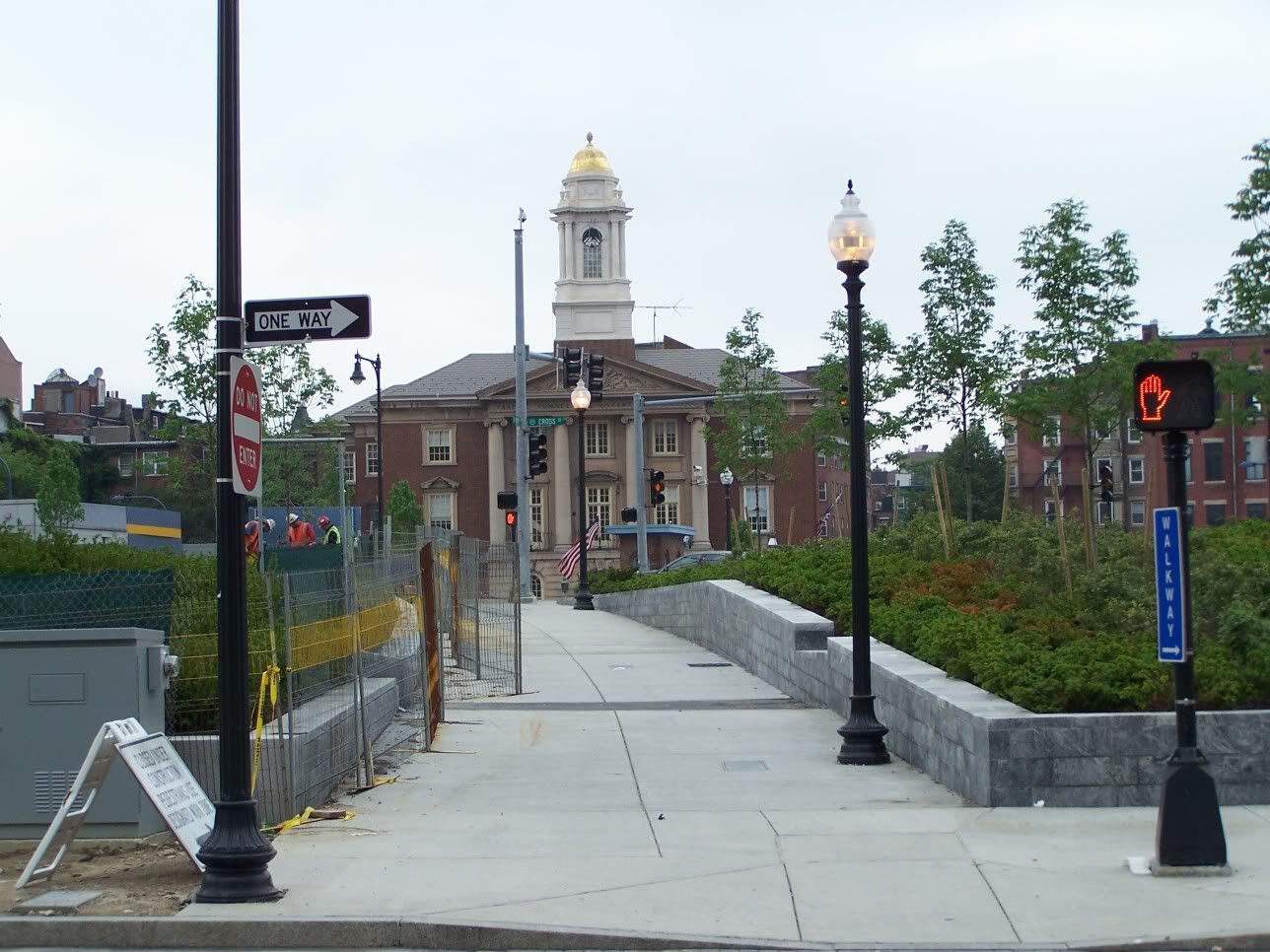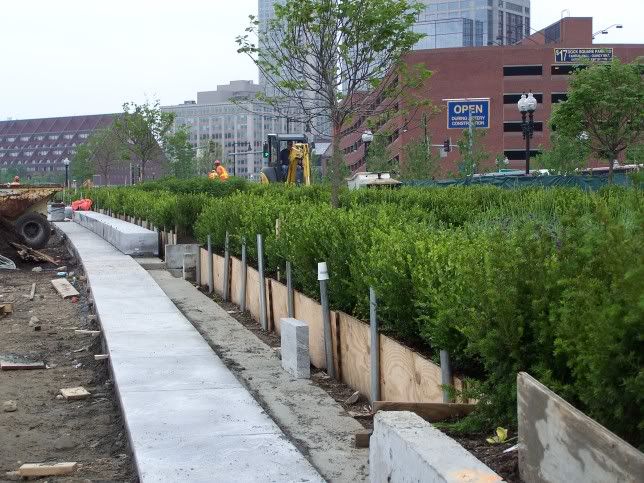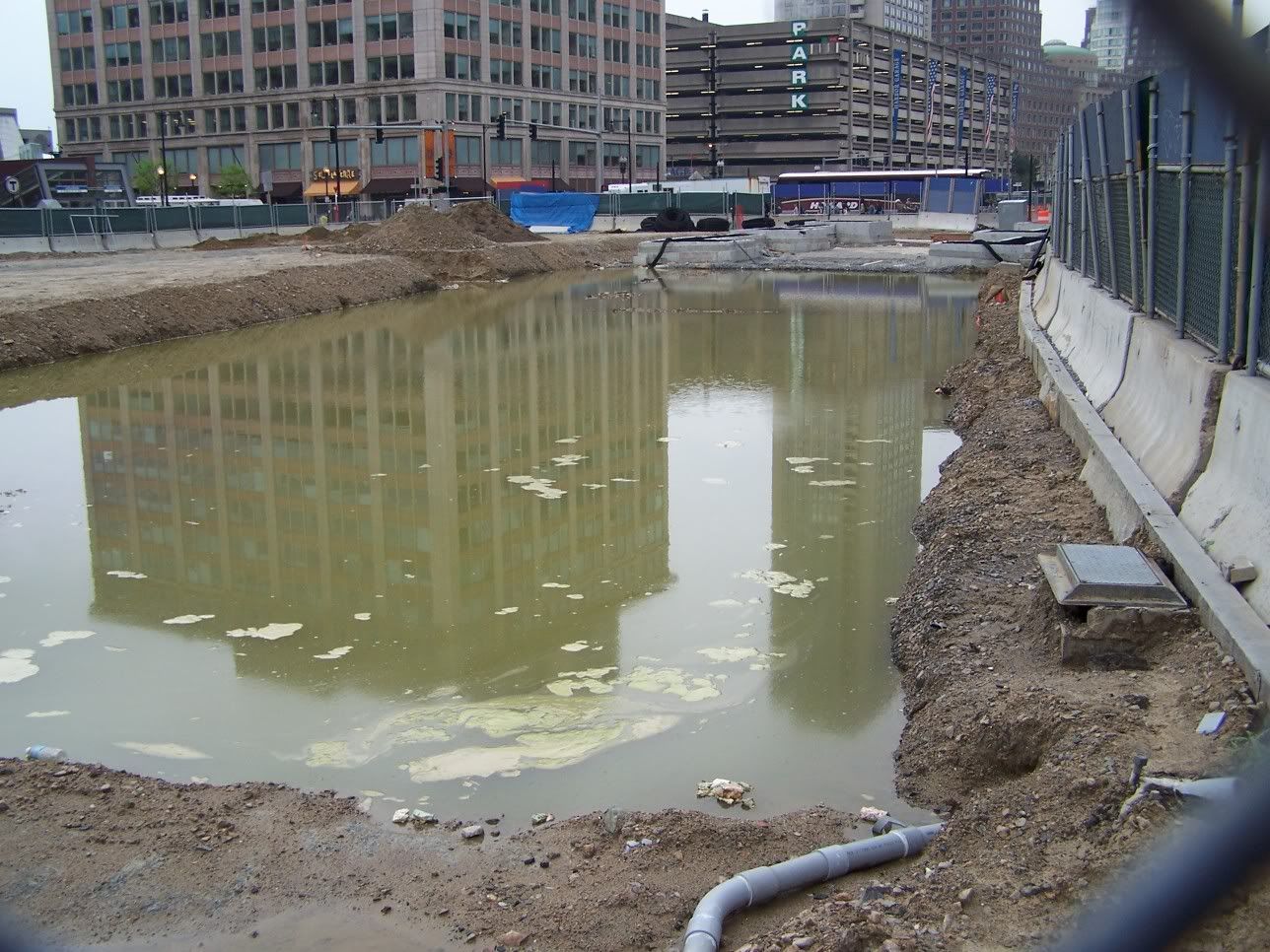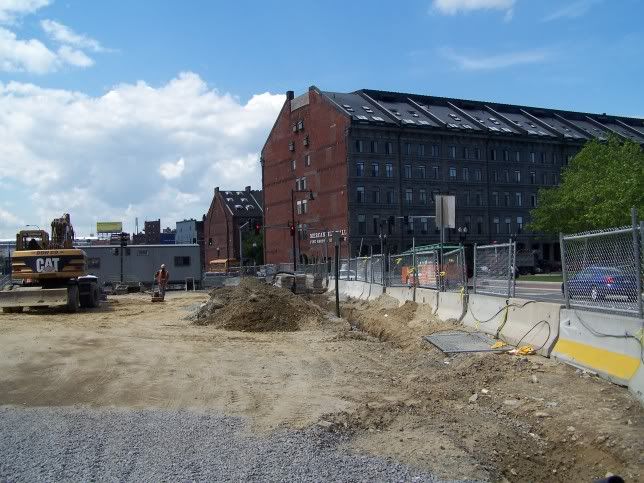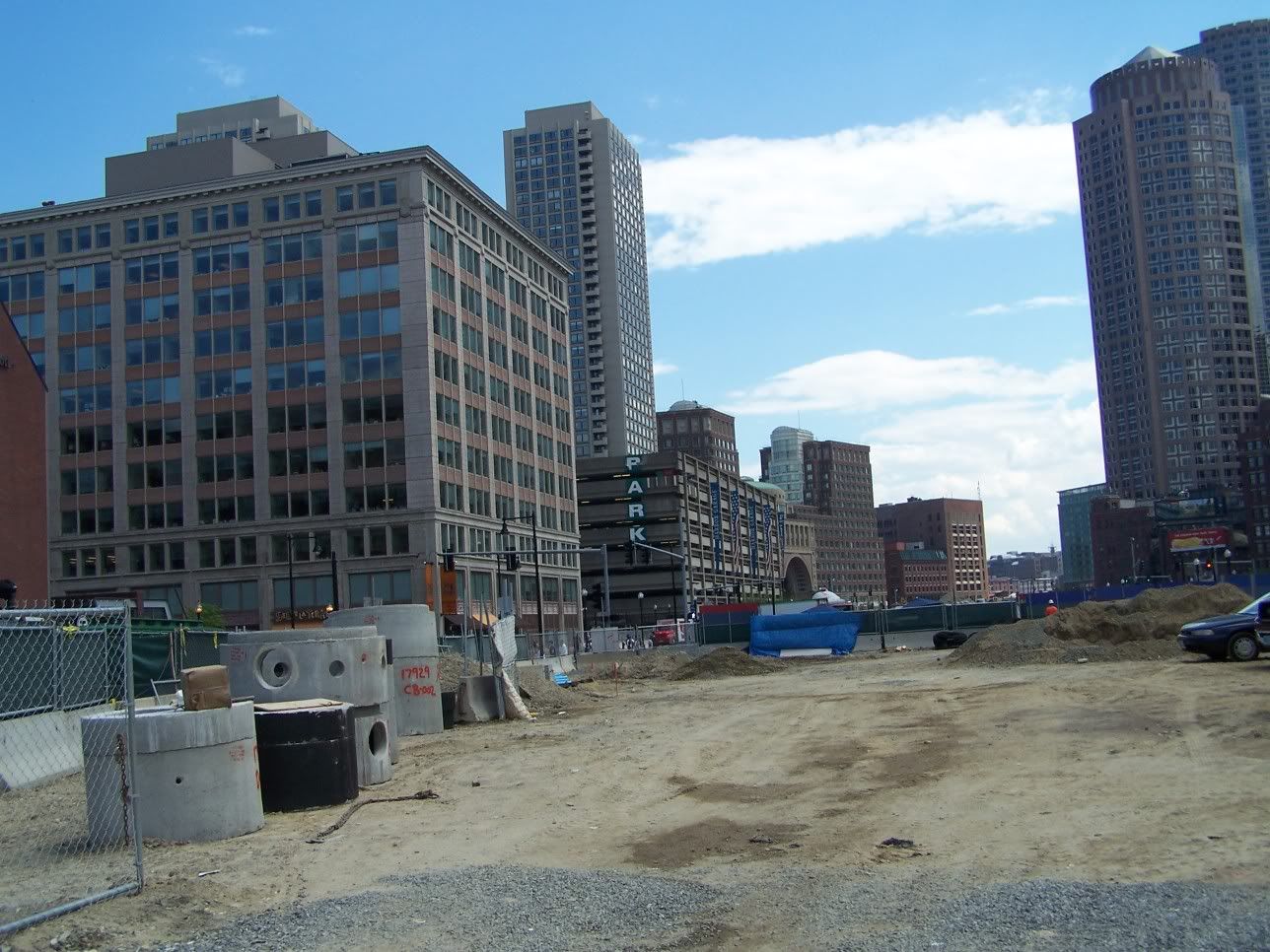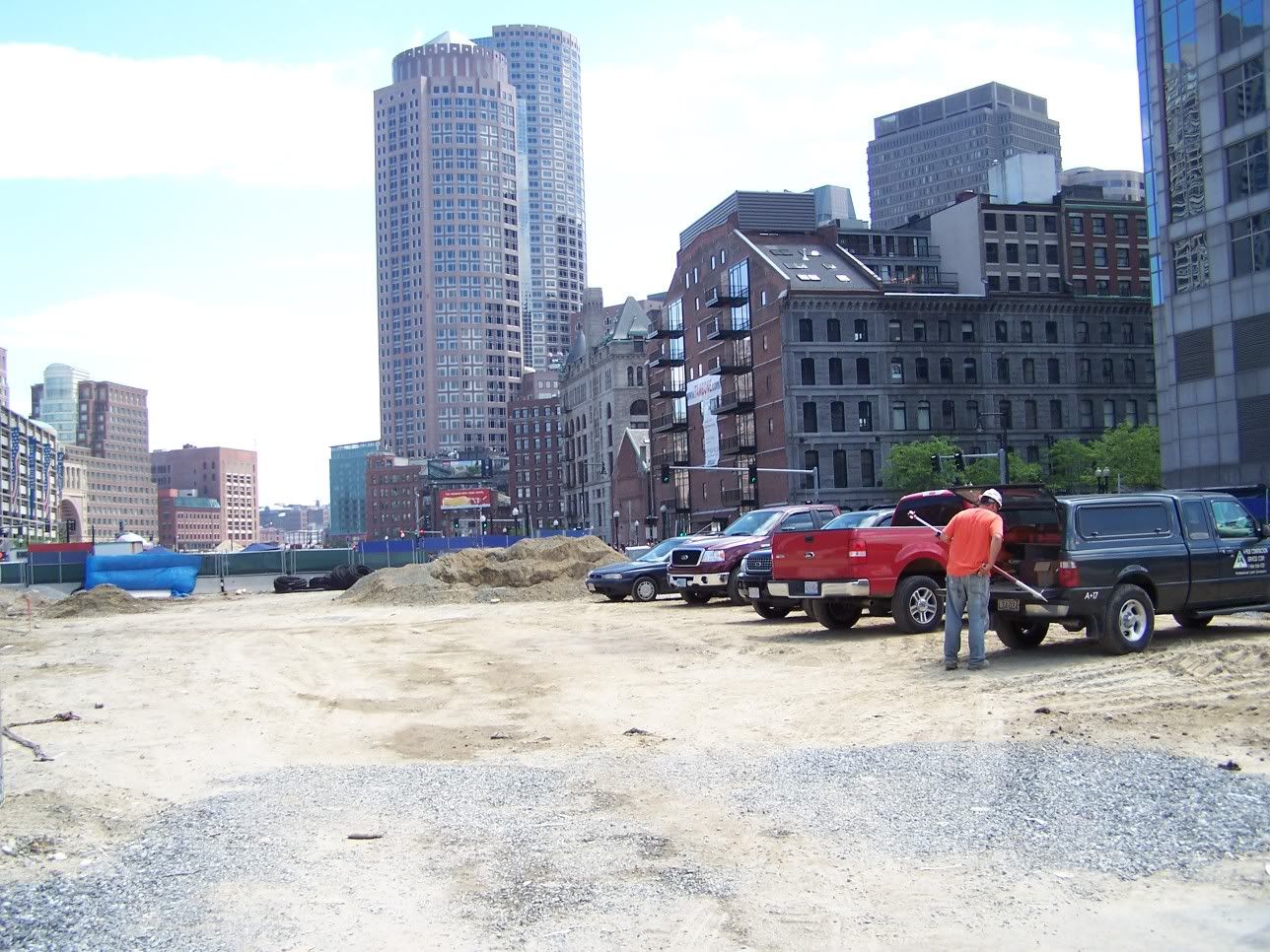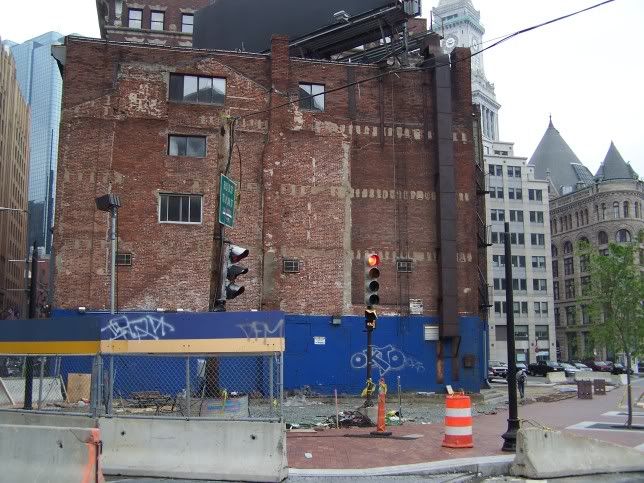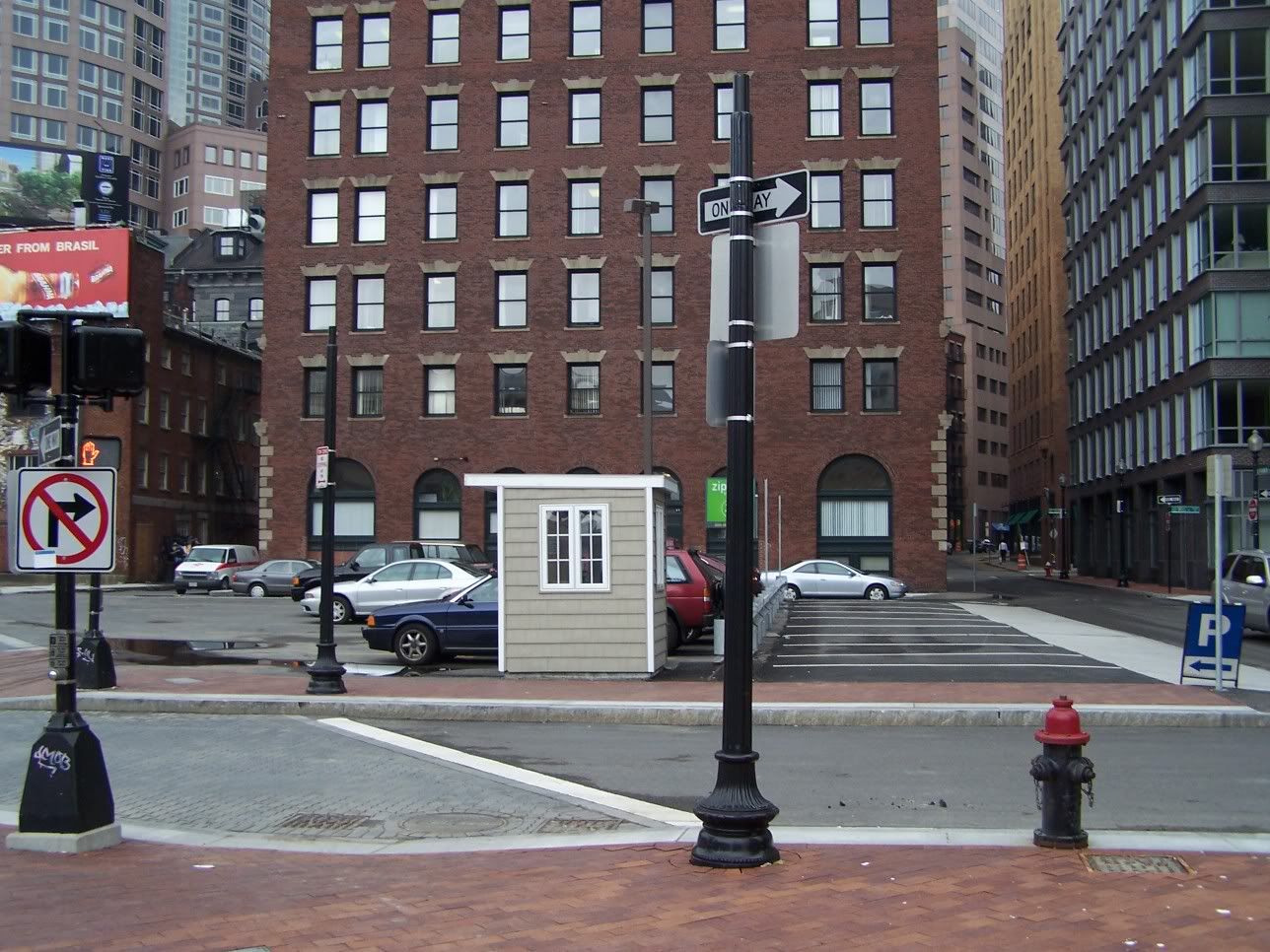Big Dig's required parks said to lag
State official details many missing pieces
By Andrea Estes, Globe Staff | June 13, 2006
The commissioner of the state Department of Conservation and Recreation is charging that Big Dig officials have failed to meet their legal obligation to complete a city parks system that they had promised in order to win support for the massive project.
In a scathing letter to Big Dig officials, Stephen Burrington, the department's commissioner, said the Big Dig has stopped design work on and has not yet begun construction of ``two pedestrian bridges, including one spanning the Charles River, and a DCR maintenance facility. Nor has it begun to rehab four crumbling, historic buildings on the Charles River Dam."
``Despite DCR's repeated requests . . . [the Massachusetts Turnpike Authority] has put these projects on hold and left their ultimate completion in jeopardy," Burrington wrote Big Dig project manager Michael Lewis June 8. The Globe obtained a copy of the letter last week .
Burrington threatened to ask state environmental authorities to step in if Big Dig officials do not comply with the requirements. The Department of Environmental Protection could rescind permits, order a timetable for completion of the projects, or impose substantial fines, state officials said.
Burrington's letter marks the latest chapter in a feud between the Romney administration and the Big Dig. In the past, Governor Mitt Romney has criticized managers of the huge project for cost overruns. In 2004, the governor also threatened to take over management of parklands created by the Big Dig.
But Big Dig officials said they have been making steady progress on what is called the New Charles River Basin Parks and intend to meet their obligations.
``The majority of the New Charles River Basin Parks have been completed or are under construction," said Thomas Farmer, Turnpike Authority spokesman. ``We remain committed to the required mitigation measures for the Central Artery/Tunnel Project. We have been working very closely with the DCR, the Charles River Basin Parks Citizens Advisory Committee, the MBTA, the cities of Boston and Cambridge, as well as the property abutters, and will continue to do so until all issues are resolved and the work is complete."
Burrington, however, said that despite his ``good faith effort" to work with Big Dig officials on the park plan, ``there has been no movement on their end."
``Because it was one of the most complex transportation projects in history, the mitigation requirements were pretty carefully planned," he said in an interview. ``These were things that were to be done early on, before construction of the Zakim Bridge. Here we are in 2006 and these things remain undone."
Burrington said he fears that money allotted for the park system will run out and Big Dig officials will feel they have no obligation to complete unfinished projects.
``The whole concept of this park complex was to extend the Esplanade down to Boston Harbor, so people would be able to walk to the harbor along the North End. If you don't have these connections, that can't happen, and you'll end up with isolated park parcels tucked in odd locations," Burrington said.
To secure the necessary environmental permits for the $14.6 billion project, Big Dig officials agreed to create parks, landscaped open space, and other public areas at a cost of $300 million. Costs for the parks, originally set at $80 million in 1993, have grown to $98 million, officials said.
More than 40 acres of new parkland have been planned for either side of the Charles River between the dam near the Museum of Science and the Leonard P. Zakim Bunker Hill Bridge. Many of these have been completed or will soon be completed, including North Point Park on the Cambridge side, Nashua Street Park near Spaulding Rehabilitation Center, and Lovejoy Wharf under the Zakim Bridge.
But according to Burrington, Big Dig officials are now spending their money on landscaping and paving, instead of the construction of a planned new pedestrian bridge spanning the Charles River and another connecting the parks on the Boston side, from the Spaulding Rehabilitation Center to land beneath the Zakim Bridge.
In addition, the Big Dig demolished a Department of Conservation and Recreation maintenance facility on the Cambridge-Boston line, promising to build a new one at another location . But the facility was never built, and department crews have been working in temporary trailers on the site for nearly 10 years, state officials said.
Also, the Big Dig agreed to renovate four buildings at the Charles River Dam near the Museum of Science including the State Police headquarters, stables, and boathouse. They are in disrepair and need attention, Burrington said.
``Demolition of the historic buildings by neglect is flatly inconsistent with MTA's legal obligation to renovate and rehabilitate the buildings," he wrote.
Anne Fanton of the Central Artery Environmental Oversight Committee, an independent panel set up in 1991 to monitor the project's mitigation obligations, called it essential that the remaining park projects be finished.
``There are commitments remaining unfunded that are critical to connecting the parks to one another and to completing the new Charles River Basin parks as promised," she said. ``It is essential that the Central Artery/Tunnel project and DCR reach agreement on the cost of these remaining commitments."
Robert O'Brien, a member of the New Charles River Basin Citizens Advisory Committee, said he was surprised by the letter.
``It was my understanding they were making some progress," he said.
``I'm somewhat surprised that people are threatening things. These are complicated issues that aren't easy to resolve and may take more money than is on the table. Progress is required, but I thought progress was being made."

